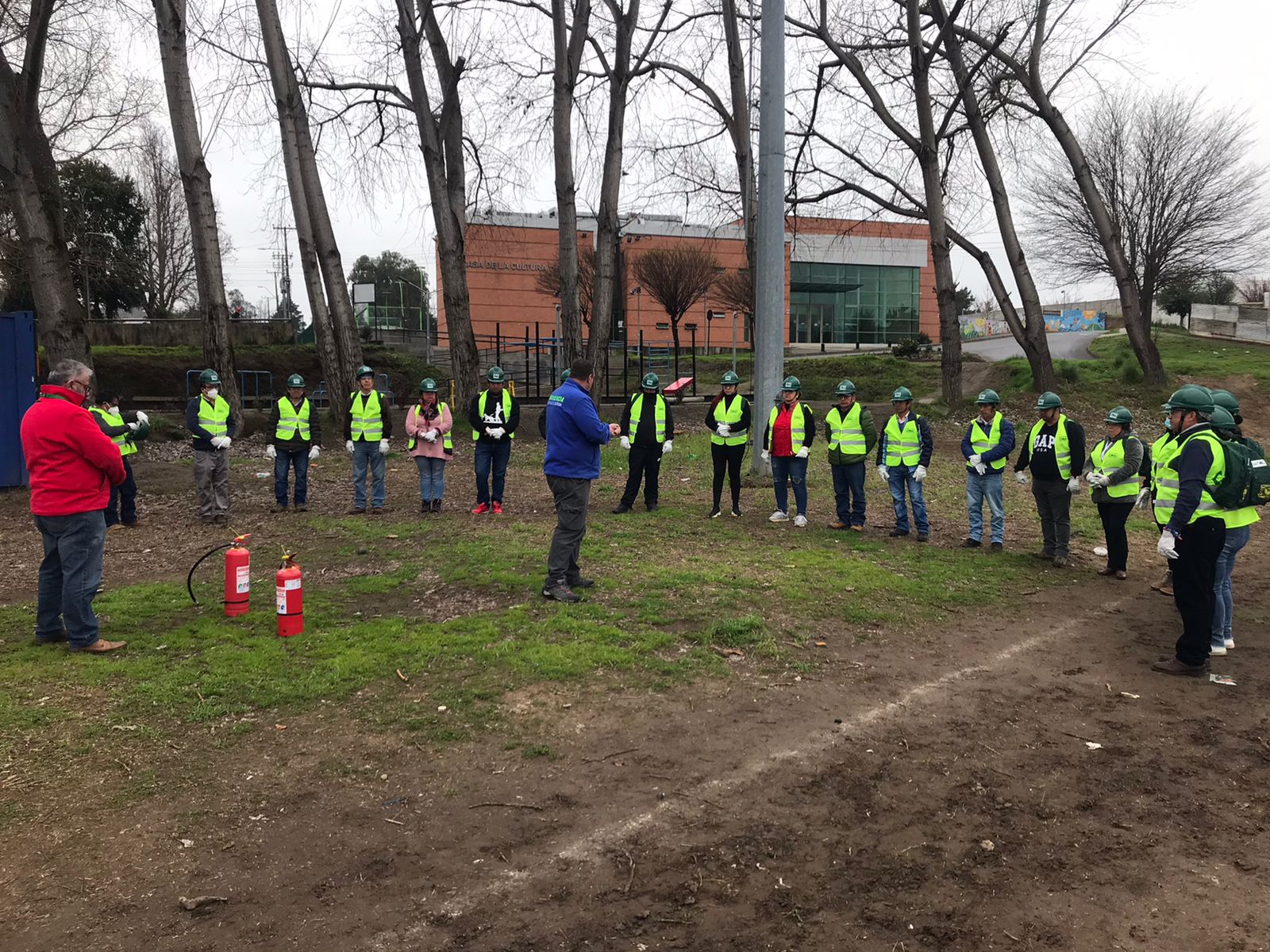Providing response capabilities to communities exposed to risks is the main goal of the Community Emergency Response Team (CERT) course delivered by Senapred to 20 residents of the Culenco community, a sector located 10 km north of the Nacimiento district.
This training, developed under a public-private cooperation framework, covers 7 topics: disaster preparedness, fire safety, emergency and disaster first aid (levels 1 and 2), psychological first aid in emergencies and disasters, basic search and rescue operations, and CERT team organization.
Gabriel Quijada, head of the Disaster Risk Management Section of the Nacimiento Municipality, emphasizes that the objective is "for people, in the first minutes of a disaster and when emergency agencies are overwhelmed, to react within their communities before professional help arrives, thus saving lives."
This CERT course is the fourth conducted in the Nacimiento district, adding to the 20 that Senapred has delivered in the Biobío region, empowering over 400 people in this type of response. "This course was carried out under a public-private partnership between CMPC and the Nacimiento Municipality," Quijada specifies.
The residents of the Culenco Prevention Committee who underwent this training personally experienced the impact of being surrounded by fire in February 2023. That's why they were selected by the Biobío Region CERT instructor team. "Last season, fires severely affected this area, and the neighbors were the first to respond. It's a sector heavily impacted by fire, and in this context, the goal is to strengthen their emergency response through these courses," says Isaías Carrillo, Prevention Manager of the Community Prevention Network. "Since these neighbors are at high risk, the municipality decided to support them with this course," he adds.
Valeria, a resident and community leader, valued this learning opportunity because "any new knowledge is always good, and in these matters of emergencies and disasters, it makes us feel safer in the face of an event, as we will be able to think differently, organize our ideas, and act more effectively," she says.







Comentarios (0)
No hay comentarios aún. ¡Sé el primero en comentar!
Deja un comentario